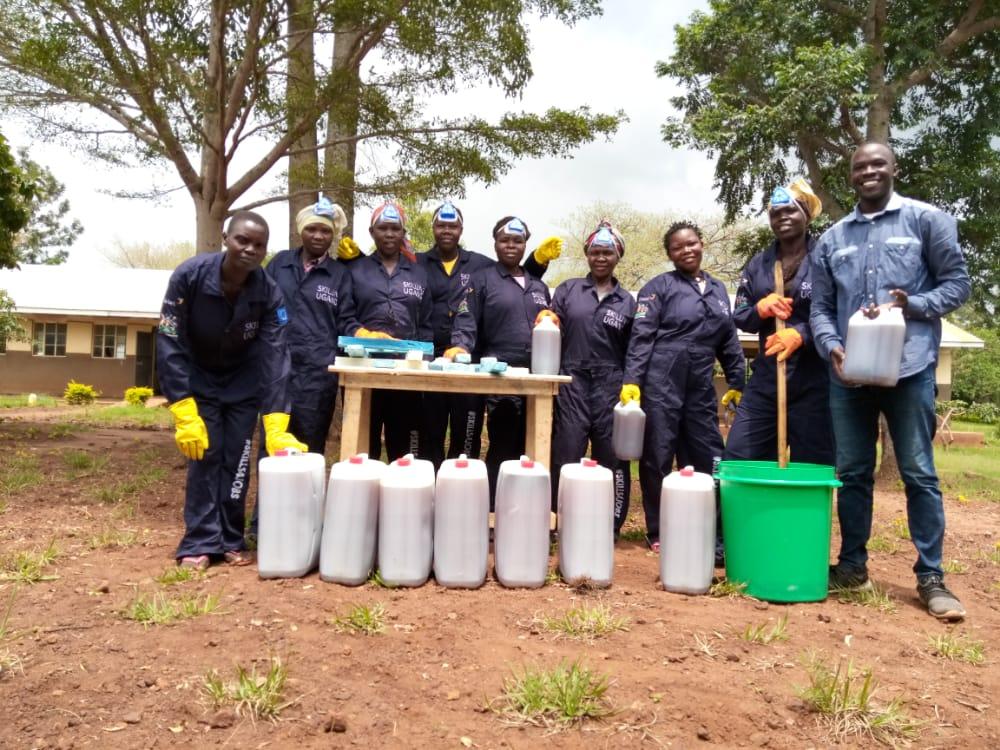350 more Refugees & Host Communities trainees get skills training in West Nile - Uganda
Another 350 young
people in Uganda’s West Nile region have enrolled in short term skills training
courses organized by the Belgian development agency Enabel.
This brings to 2,550
the total number of youth, both Ugandans and South Sudanese refugees, who have
benefited from the programme in the last four years.
The new batch of
students, based in the districts of Arua and Yumbe, are trained in bakery, shoemaking
and soap making, which are marketable enterprises in the area.
“The courses last
between 10 and 100 hours,” says Enabel’s training manager, Robert Kisoma. “At
the end of the training, the beneficiaries receive a start-up kit to enable
them start a business.”
Bakery students are
given a frying pan and a bag of wheat flour. Students in shoemaking get sowing
needles and a shoe frame, while those in soap making receive a mold, a weighing
scale and a bucket.
The project, funded
by the European Union Emergency Trust Fund (EUTF), aims to contribute to the peaceful
co-existence of host and refugee communities. The region hosts over one million
refugees.
It also aims to address
youth unemployment and poverty in West Nile – the second poorest region in
Uganda, according to the World Bank.
Indeed, a 2015
baseline study found that 71 percent of the youth in the region lived in
extreme poverty, while an estimated 31 percent was unemployed.
One of them was
Jackson Eneku, a 23-year old Ugandan resident of Arua. Since he dropped out of
secondary school, he had no way of making ends meet.
Eneku was selected to participate in the bakery training and
received the start-up kit. Now he is earning on average UGX30,000 a week from
the sale of his locally baked bread.
In the neighbouring
district of Adjumani, Betty Doru, a 24-year old South Sudanese refugee who
completed the same course, started a bakery with some fellow students.
“With the sale of our
bread, we have set up a saving scheme. Members can borrow money from the scheme
to support their families,” she says.
Kenneth Kaunda,
Enabel’s Skills Development Director, says after the training, most beneficiaries
either become self-employed or find a job.
The majority see their
income increase significantly. Research conducted by Enabel found that 80
percent of beneficiaries saw their earnings rise by at least 50 percent.
Dernières actualité de ce projet
Pas d'actualité

